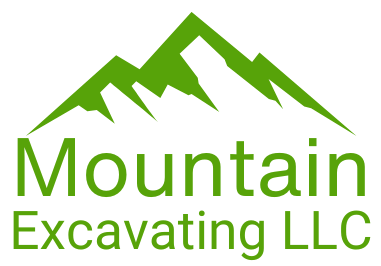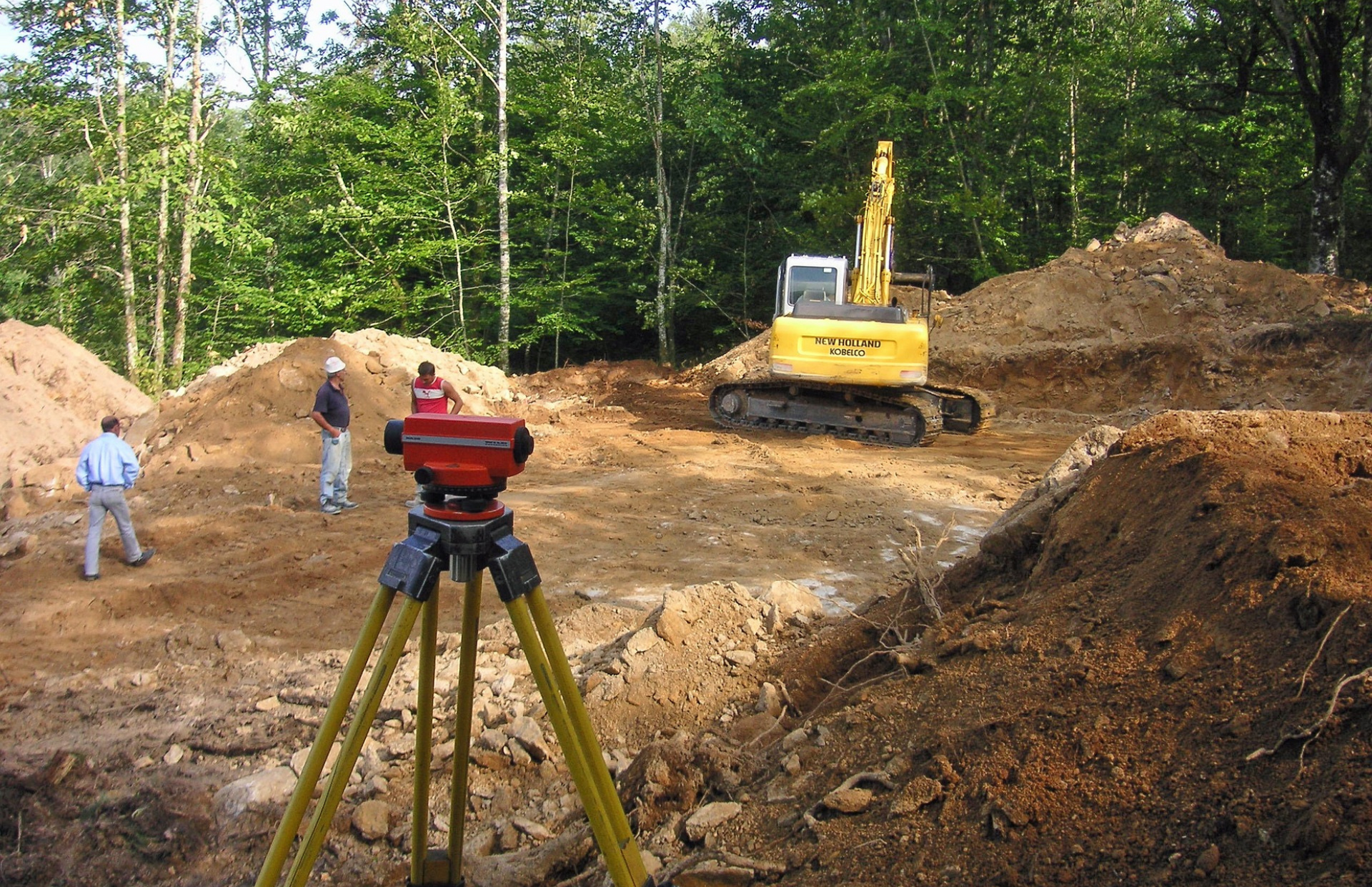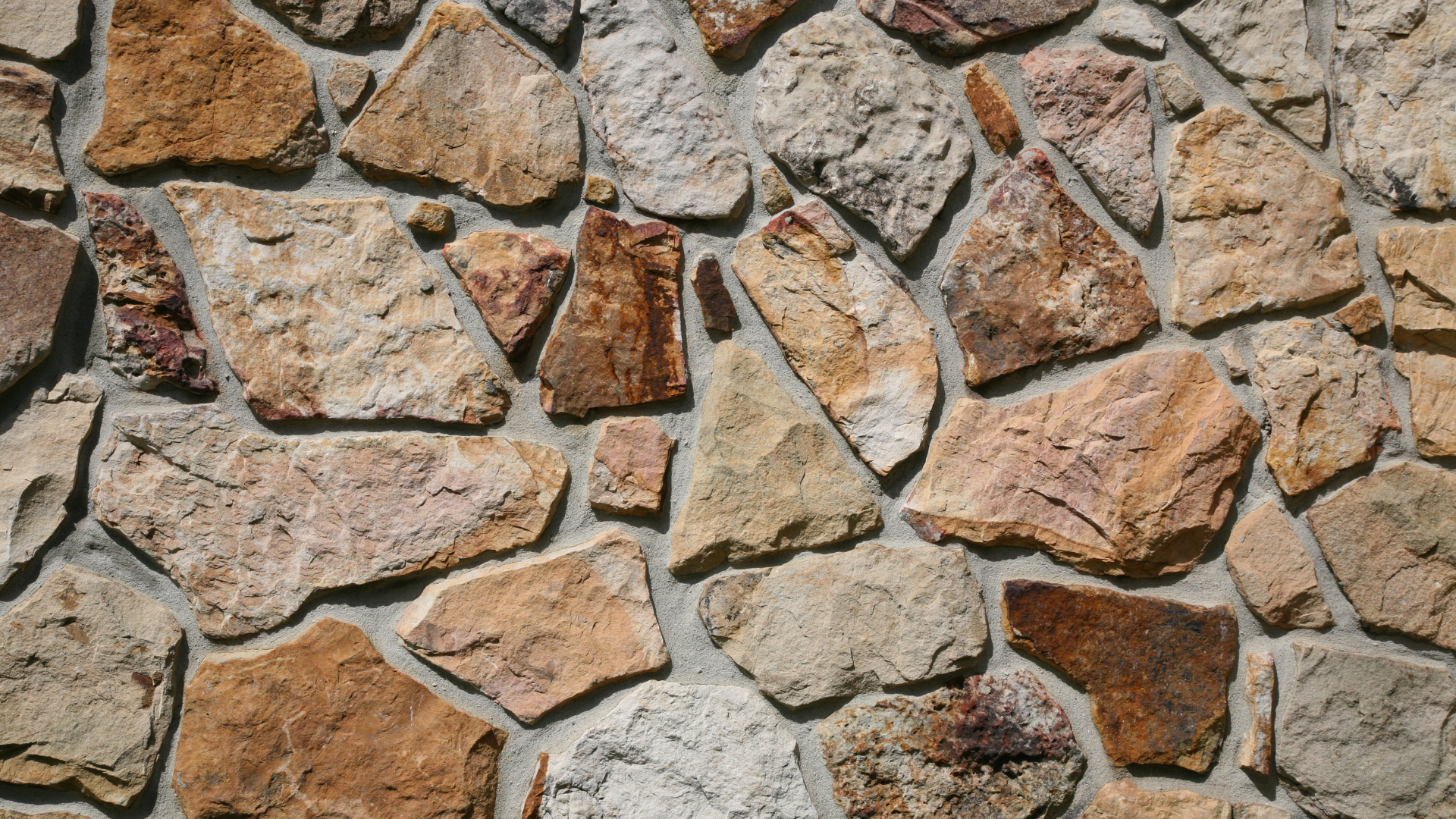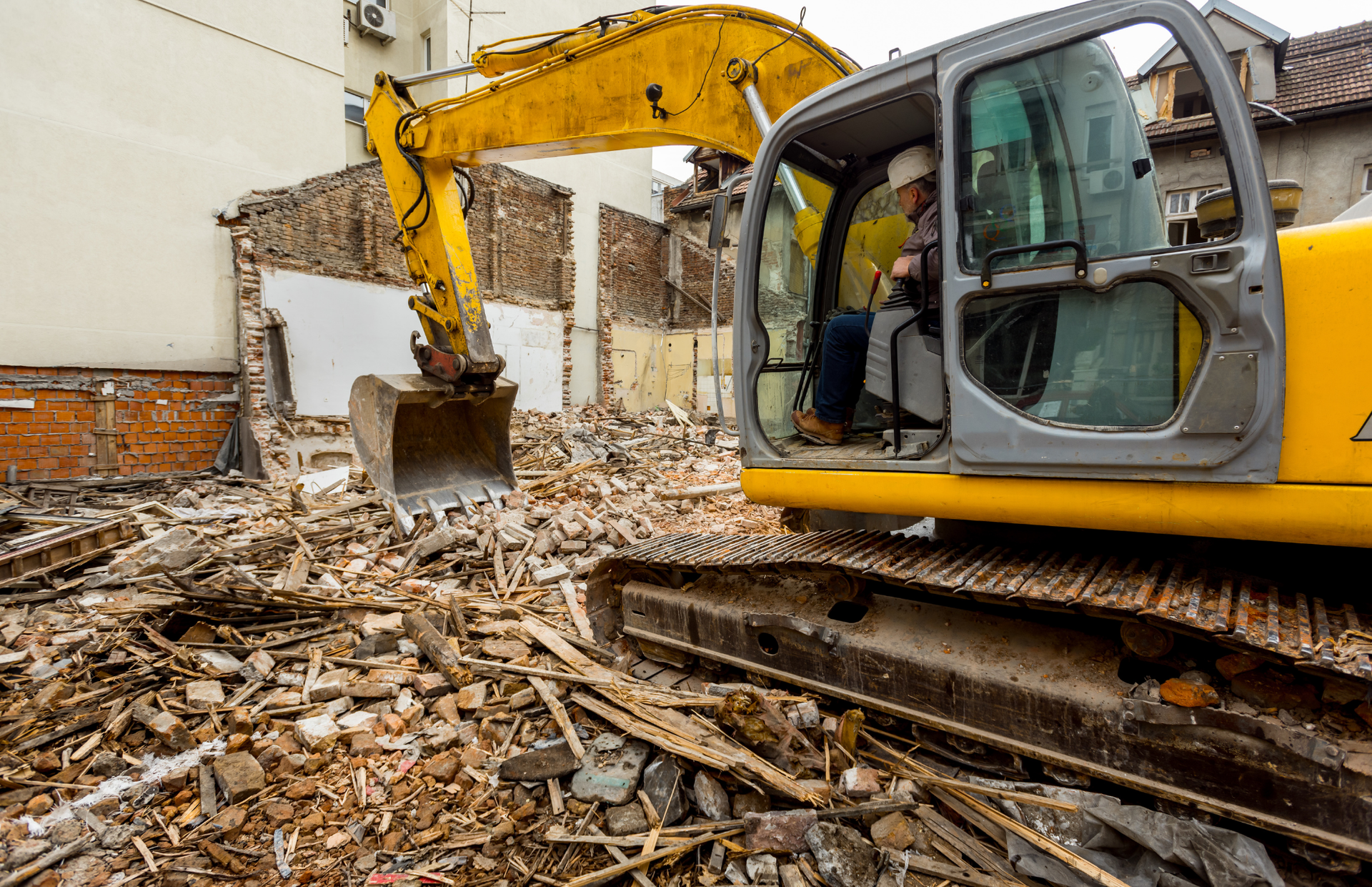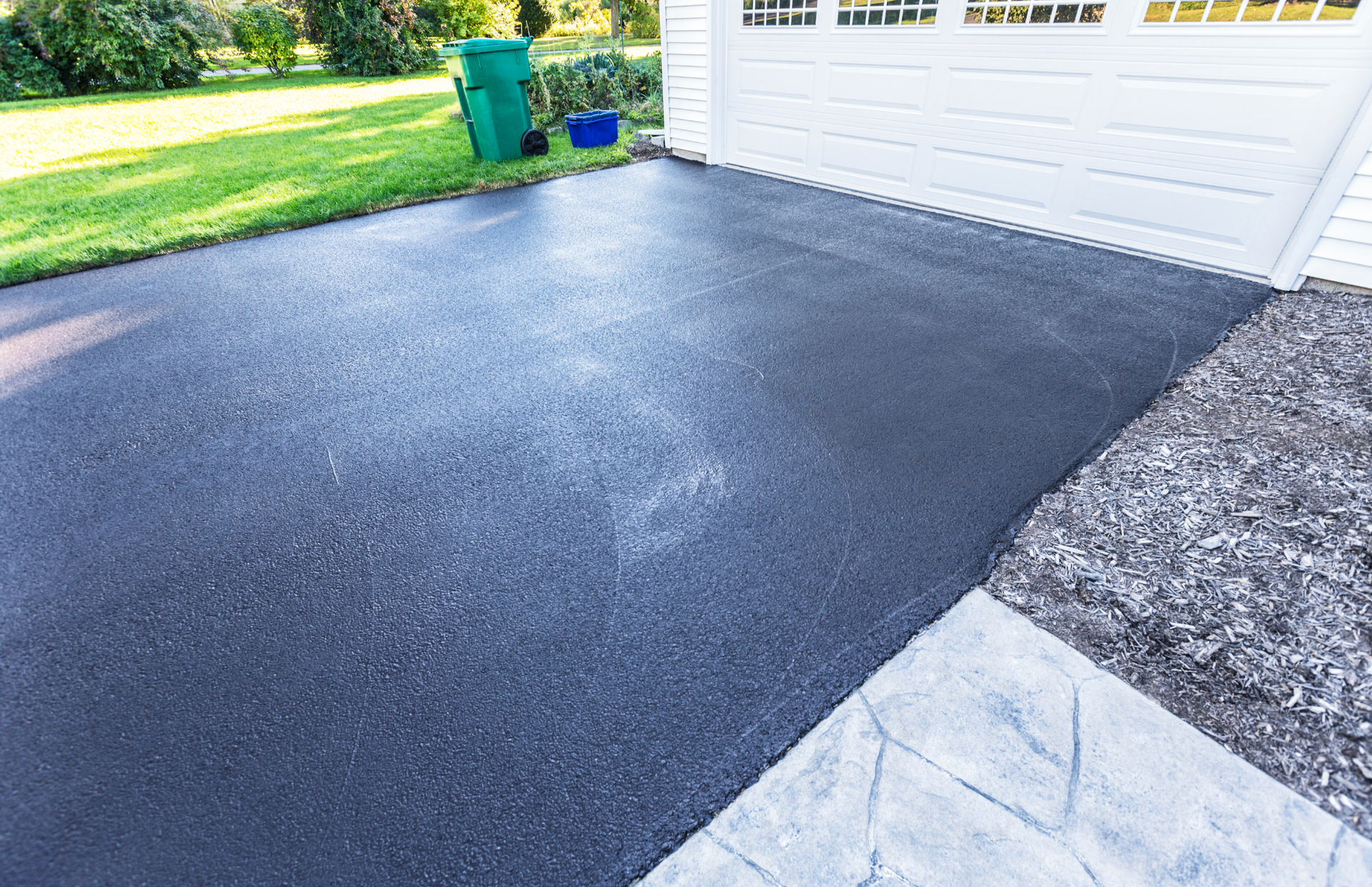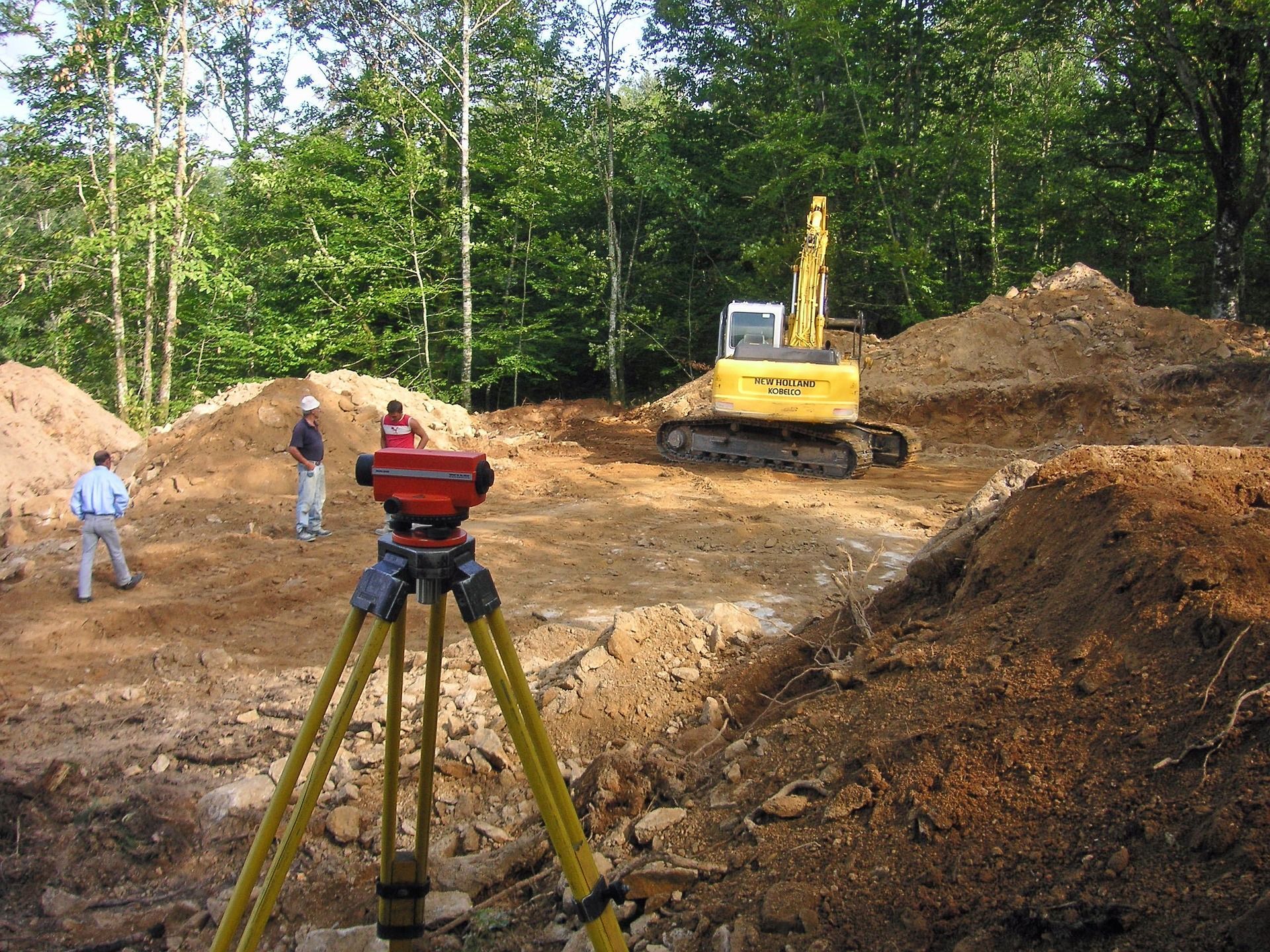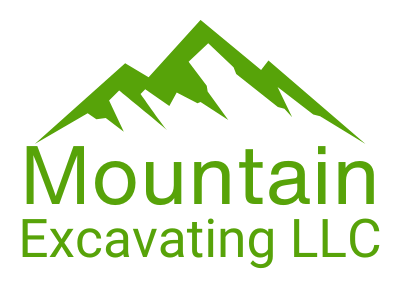The Complete Guide to Grading and Drainage for Mountain Properties
Learn how proper grading and drainage protect your mountain property in Western NC.
Grading and drainage are often overlooked during early site development—but in the mountains of Western North Carolina, these two steps are absolutely essential. Improper grading can lead to standing water, foundation failure, hillside erosion, and even collapsed driveways. Drainage mistakes in Pisgah Forest, Brevard, or Hendersonville aren’t just inconvenient—they’re expensive to fix and dangerous to ignore.
Whether you're building a new home, preparing raw land, or fixing drainage issues on existing property, this guide covers everything you need to know about grading and drainage for mountain properties.
Why Grading and Drainage Matter in Mountain Terrain
Grading and drainage are the twin pillars of land stability and water control. When done correctly, they ensure:
- Safe, stable building pads and roadways
- Proper runoff direction away from structures
- Reduced erosion on slopes
- Long-term structural support
- Protection from water intrusion and mold
In mountain regions like Transylvania County, properties often sit on steep terrain with clay-heavy soils and unpredictable rainfall. Without proper grading, water can flow straight toward your home’s foundation—or worse, wash away driveways or support walls during a storm.
At Mountain Excavating LLC, we specialize in grading and drainage solutions tailored for the rugged terrain of Western NC.
What Is Land Grading?
Grading is the process of reshaping the earth’s surface to achieve a desired slope, level, or contour. It may involve:
- Cutting (removing soil)
- Filling (adding soil)
- Compact grading for structural support
- Crowning to create a drainage peak
- Terracing to break up long slopes
Grading helps create flat areas for building foundations, driveways, patios, and lawns—and it ensures water flows away from structures, not toward them.
What Is Drainage in Site Prep?
Drainage involves managing water movement across the property using engineered slopes, barriers, or systems. Common mountain drainage systems include:
- Surface grading with natural slopes
- French drains and gravel trenches
- Culverts under driveways or roads
- Swales or shallow ditches
- Retaining walls with weep holes
Drainage is especially important on sloped land, where heavy rain can trigger erosion or landslides if not properly controlled.
How Grading and Drainage Work Together
Grading sets the shape of the land. Drainage uses that shape to guide water to safe exit points.
For example:
- A driveway is
graded with a crown in the center, and water flows down both sides.
- A house pad is
graded to slope 5% away from the foundation.
- A sloped yard is
graded into tiers or swales, with a French drain installed to capture overflow.
In mountain regions, these systems must account for:
- Rapid rainfall and runoff
- Clay soil with poor percolation
- Natural springs or seeps
- Limited flat ground and steep elevation changes
Types of Grading for Mountain Properties
1. Rough Grading
This is the first phase after land clearing. It shapes the terrain to support future construction, including:
- Leveling building pads
- Cutting driveways into slopes
- Building access roads
- Smoothing out steep banks
2. Finish Grading
This comes after construction and includes final smoothing, contouring, and shaping. Finish grading also prepares land for landscaping or lawn installation.
3. Slope Grading
Used to adjust the angle of hillsides for stability or drainage. May include slope reduction or creation of retaining structures.
4. Terracing
For steep hillsides, grading into terraces or steps slows down runoff and creates usable areas for gardening, walking paths, or patios.
Drainage Systems for Mountain Land
There is no one-size-fits-all solution. Mountain Excavating LLC designs drainage systems based on each site’s elevation, soil type, and stormwater behavior.
1. French Drains
Gravel-filled trenches with perforated pipe that redirect water underground. Best for:
- Low areas with pooling
- Around house foundations
- Along hillsides to intercept runoff
2. Surface Swales
Shallow, grassy ditches graded to carry water away from buildings. These are often installed along roads, driveways, or the edge of a property.
3. Culverts
Large-diameter pipes that direct water under a driveway or road. These are critical where natural creeks or drainage channels cross an access route.
4. Retaining Walls with Drainage
Retaining walls should include gravel backfill and weep holes or drain pipes to prevent pressure buildup. Proper drainage prevents blowouts and collapses.
5. Downspout Extensions and Splash Blocks
Directing roof water away from the foundation prevents erosion and basement flooding. In mountain areas, downspouts are often routed to French drains.
Common Grading and Drainage Mistakes in Mountain Areas
Even a small oversight in site prep can lead to costly consequences. Here are frequent mistakes property owners or inexperienced contractors make:
Mistake
Problem It Causes
Grading toward the structure
Water flows into crawl space or basement
No crown on driveways
Water pools in ruts or washes out surface
Skipping compaction
Soil settles over time, causing structural issues
Inadequate slope on patios
Water sits or drains toward buildings
No outlet for French drains
System fails or backs up during storms
Undersized or blocked culverts
Driveway washouts or road damage
Hiring a professional grading and drainage contractor who knows Western NC terrain helps avoid these issues.
How Much Slope Is Enough?
The general rule is that water should move away from the structure at a slope of at least 2%—that’s about 1/4 inch per foot.
For driveways, slopes between 2% and 8% are ideal. Any steeper, and you may need to add:
- Switchbacks
- Erosion control fabrics
- Drainage breaks
For lawns, slopes between 1% and 3% are usually enough to prevent standing water.
What Equipment Is Used?
Grading and drainage work in Western NC requires specialized machinery for tight access and steep conditions. Equipment may include:
- Mini excavators with tilt grading buckets
- Track loaders and skid steers
- Laser or GPS-guided grading systems
- Compactors and rollers
- Trenching machines for drains
At Mountain Excavating LLC, we own and operate compact equipment suited for tight mountain properties and rural sites with limited access.
Cost of Grading and Drainage in Western NC
Pricing depends on slope, soil type, and project scope.
Service
Estimated Cost (Typical Range)
Rough grading (per acre)
$3,000 – $7,000
Finish grading (per 10,000 sq ft)
$1,500 – $3,000
French drain installation
$20 – $45 per linear foot
Culvert installation
$1,000 – $2,500
Retaining wall drainage
$30 – $60 per linear foot
Final pricing requires a site visit. Mountain Excavating LLC provides free evaluations and estimates tailored to your terrain.
When to Perform Grading and Drainage Work
In Western NC, the best times for grading and drainage are:
- Late Fall to Early Spring – Less vegetation, better visibility of slope and flow
- After lot clearing but before construction begins – Ensures proper foundation support
- During driveway installation or road building – Drainage and slope can be designed together
Avoid major grading during heavy rain seasons unless erosion controls are in place.
Frequently Asked Questions
Can I grade my own land?
Small projects like lawn areas or light landscaping might be manageable for experienced DIYers. But mountain grading for homes, driveways, or roads should be handled by professionals due to safety, permitting, and technical requirements.
Will grading affect my property value?
Yes. Proper grading and drainage not only prevent costly damage—they also improve usability and visual appeal, increasing both function and resale value.
Do I need a permit for grading in Western NC?
It depends on the scale and location. Disturbing more than one acre or grading near streams or protected areas may require a sediment and erosion control permit. We can help determine permit needs and assist with filings.
What’s the difference between grading and excavation?
Excavation refers to digging or removing earth. Grading refers to shaping and leveling the earth for construction or drainage purposes. They’re often performed together during land preparation.
How do I know if I have a drainage issue?
Signs include:
- Water pooling near your home
- Erosion or washouts after rain
- Mold or moisture in crawl spaces
- Cracks in driveways or retaining walls
If you experience any of these, you may need grading or drainage intervention.
Why Local Grading Expertise Matters
Mountain land isn’t like flat land. You need a team that understands:
- Local rainfall patterns
- Native soil types (clay, sandy loam, rock layers)
- Seasonal freeze-thaw cycles
- Elevation and slope calculations
- Drainage law and permitting in Transylvania and Henderson counties
At Mountain Excavating LLC, we’ve graded and drained sites across Brevard, Pisgah Forest, Etowah, and beyond. We know what holds up in this climate—and how to make your land build-ready for the long term.
Protect Your Investment With Proper Grading
Grading and drainage are not optional in mountain construction—they’re essential. The right plan protects your foundation, controls erosion, and makes your land usable, beautiful, and functional for decades.
If you’re planning a build, buying land, or correcting drainage issues, reach out to our team for a personalized site evaluation.
Contact Mountain Excavating LLC
Serving Brevard, Pisgah Forest, Hendersonville, Etowah, and surrounding Western NC communities.
- Phone: (828) 553-9830
- Email: plandreth08@gmail.com
- Google Business Profile: https://g.co/kgs/7PFxjDq
Internal Linking Opportunities (Placeholder URLs):
- [Lot Clearing Services – https://www.mountainexcavating.com/lot-clearing]
- [Driveway Installation – https://www.mountainexcavating.com/driveways]
[Retaining Wall Construction – https://www.mountainexcavating.com/retaining-walls]
